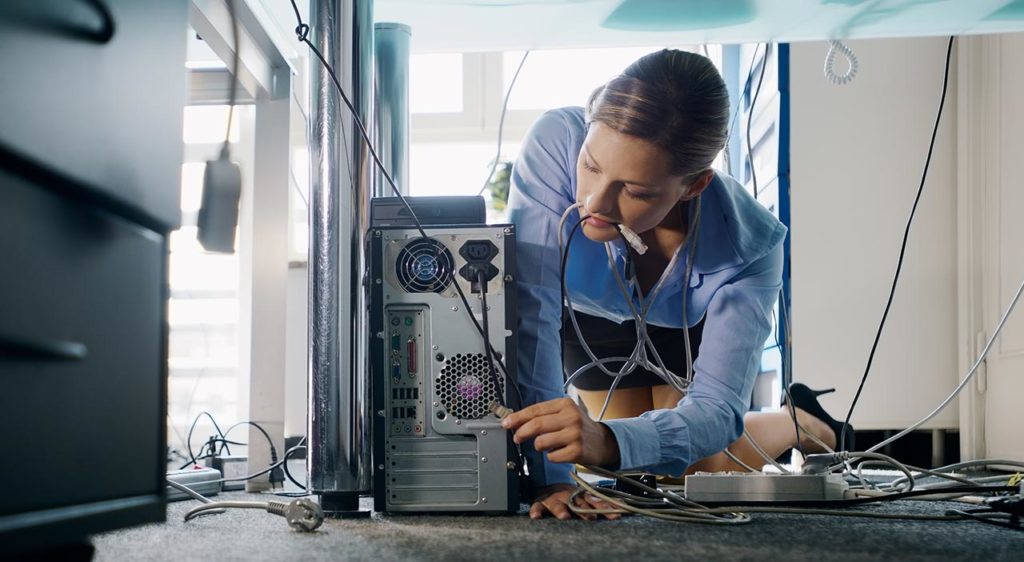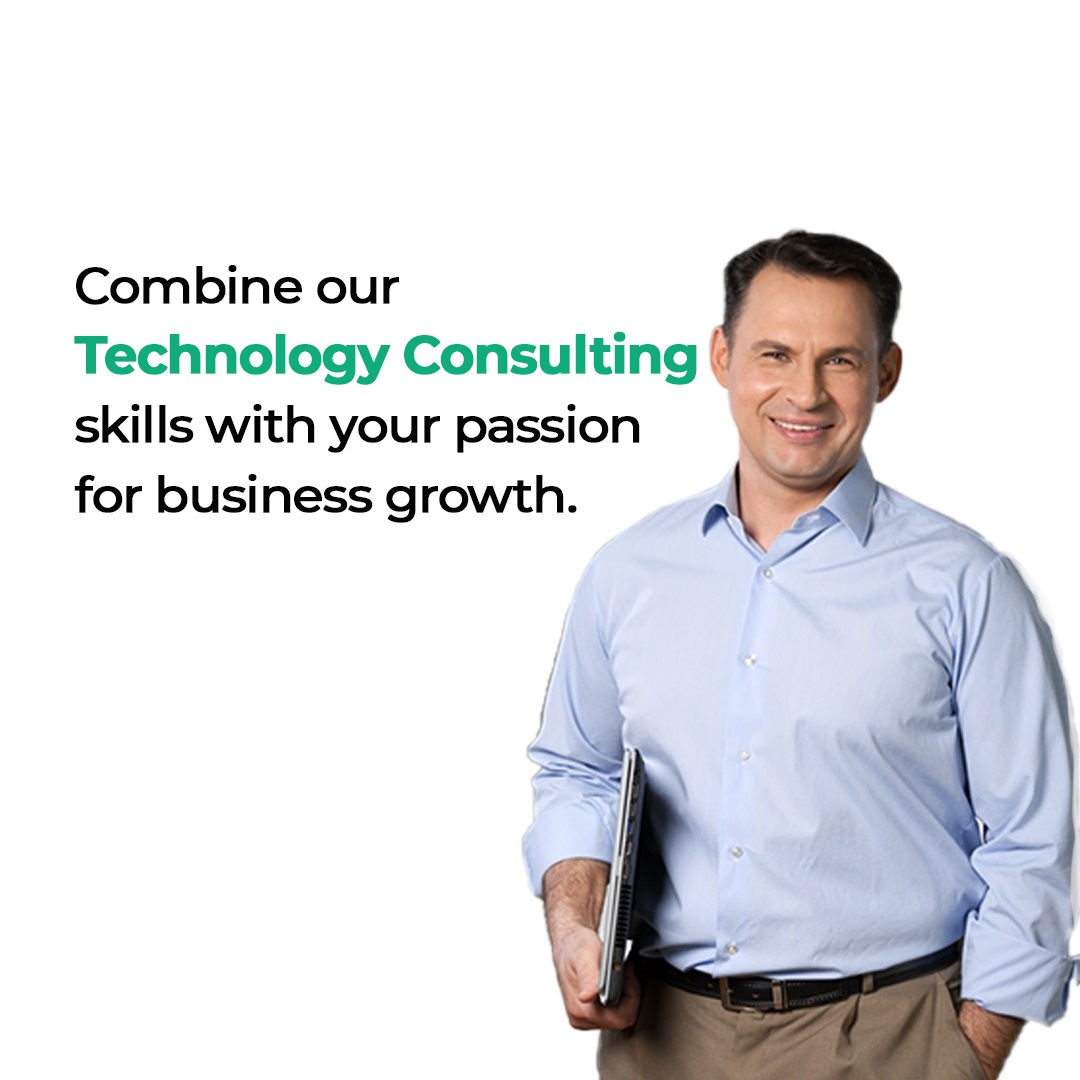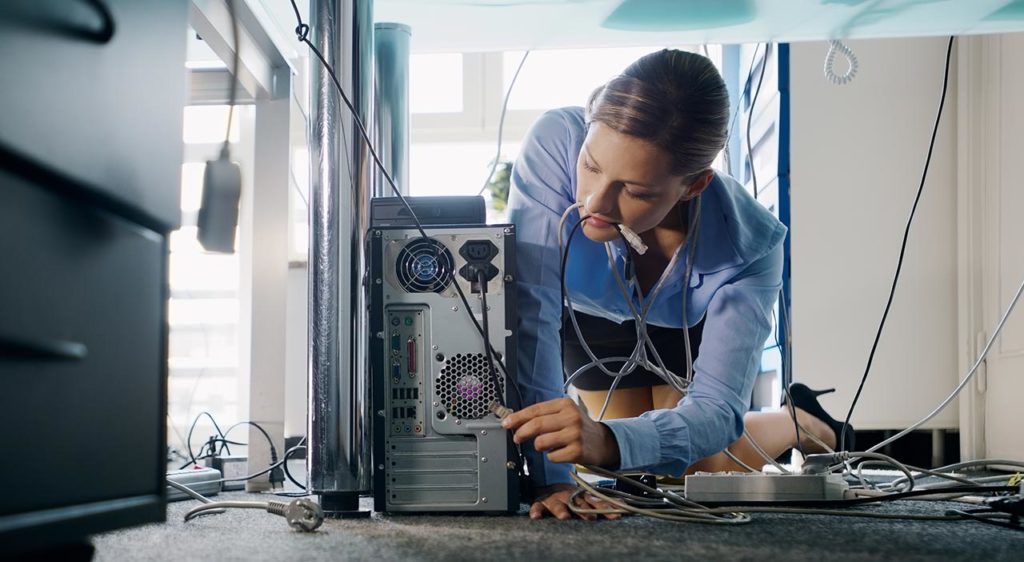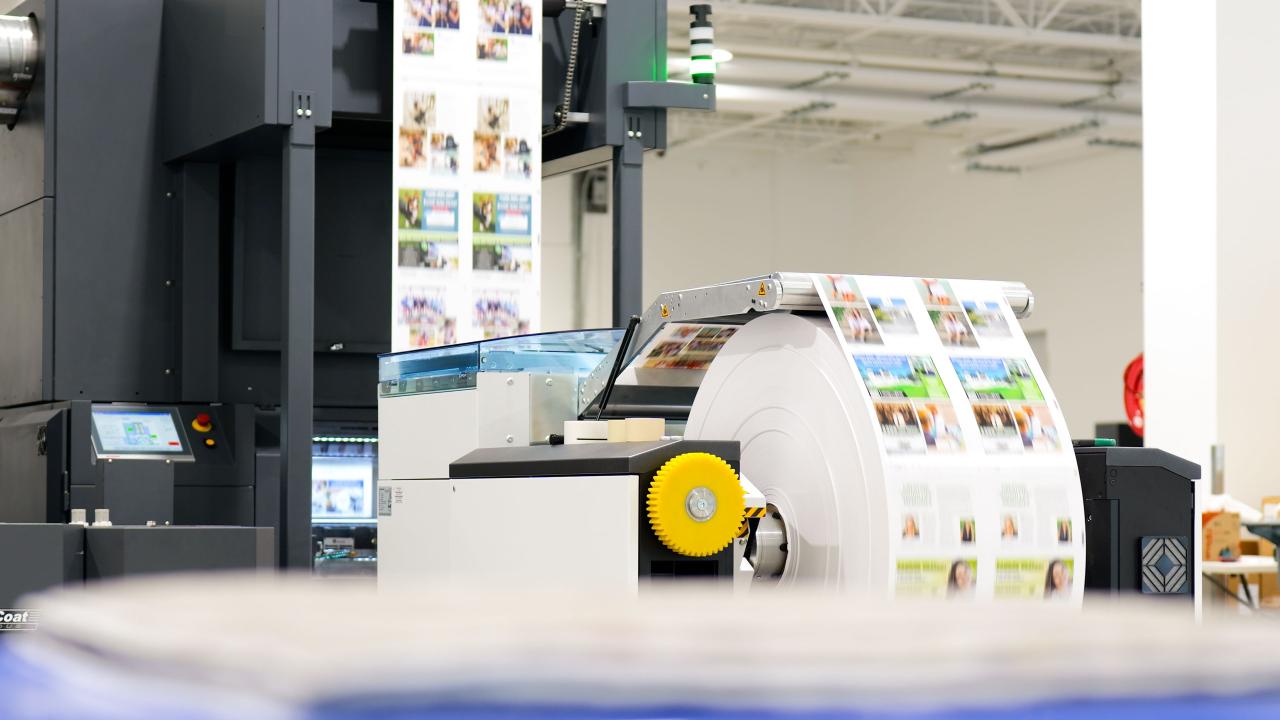Trial Technology Consultant: A Guide to Legal Tech
Trial technology consultants are the unsung heroes of the legal world, seamlessly blending technical expertise with legal strategy. They navigate the complex landscape of courtroom technology, ensuring that evidence is […]

Trial technology consultants are the unsung heroes of the legal world, seamlessly blending technical expertise with legal strategy. They navigate the complex landscape of courtroom technology, ensuring that evidence is presented effectively and that legal proceedings run smoothly.
These consultants are not just tech wizards; they are also skilled communicators, bridging the gap between legal professionals and the intricacies of technology. They understand the nuances of legal strategy and leverage technology to support persuasive arguments and compelling narratives.
The Role of a Trial Technology Consultant

In the realm of legal proceedings, where the stakes are high and the outcomes can be life-altering, the role of a trial technology consultant has become increasingly crucial. These professionals bridge the gap between the legal world and the ever-evolving landscape of technology, ensuring that evidence is presented effectively and that the legal team has the tools they need to achieve success.
Key Responsibilities of a Trial Technology Consultant
Trial technology consultants are responsible for a wide range of tasks, all aimed at enhancing the presentation of evidence and supporting the legal team in achieving their objectives. These responsibilities can be broadly categorized into the following:
- Evidence Management and Presentation: Trial technology consultants are responsible for organizing, managing, and presenting evidence in a clear and compelling manner. This may involve digitizing physical documents, creating interactive timelines, developing multimedia presentations, and ensuring the smooth operation of courtroom technology.
- Trial Preparation and Support: They assist in the preparation for trial by providing technical support, training legal team members on the use of trial technology, and conducting mock trials to refine presentation strategies.
- Courtroom Technology Expertise: Trial technology consultants have a deep understanding of courtroom technology, including video conferencing systems, document review software, and presentation platforms. They ensure that these technologies are properly configured, tested, and operated during trial.
- Data Analysis and Visualization: They may also be involved in analyzing data, creating visualizations, and presenting complex information in a way that is easily understood by jurors and judges.
Contributions to the Success of Legal Proceedings
Trial technology consultants contribute to the success of legal proceedings in several key ways:
- Enhanced Evidence Presentation: By effectively presenting evidence, trial technology consultants help to increase the persuasiveness of the legal team’s arguments and make it easier for jurors to understand the facts of the case.
- Improved Efficiency and Organization: Trial technology consultants help to streamline the trial process by organizing evidence, managing data, and ensuring the smooth operation of technology, which can save time and resources.
- Enhanced Jury Engagement: The use of technology can make trials more engaging for jurors, leading to a better understanding of the case and more informed deliberations.
- Strategic Advantage: Trial technology consultants can provide strategic insights into the use of technology in the courtroom, helping the legal team to develop a winning strategy.
Common Tasks Performed by a Trial Technology Consultant
Trial technology consultants perform a wide range of tasks, which may vary depending on the specific needs of the case. Some common tasks include:
- Digitizing and Organizing Evidence: Converting physical documents, photographs, and other evidence into digital formats for easier management and presentation.
- Creating Interactive Timelines: Developing timelines that visually represent the sequence of events in a case, helping jurors to understand the chronology of events.
- Developing Multimedia Presentations: Creating presentations that incorporate images, videos, and animations to enhance the visual appeal and impact of evidence.
- Setting Up and Testing Courtroom Technology: Ensuring that video conferencing systems, document review software, and other courtroom technology are properly configured and functioning correctly.
- Providing Technical Support During Trial: Assisting the legal team with any technical issues that may arise during the trial.
- Training Legal Team Members on Trial Technology: Educating attorneys, paralegals, and other legal staff on the use of trial technology.
- Conducting Mock Trials: Running practice trials to refine presentation strategies and identify potential technical challenges.
- Analyzing Data and Creating Visualizations: Extracting insights from data, creating charts, graphs, and other visualizations to present complex information in a clear and understandable manner.
Technical Expertise in Trial Technology
Trial technology consultants need a strong foundation in technical skills to effectively support legal teams. They must understand the software and hardware used in legal proceedings, as well as the principles of data visualization and analysis. This expertise enables them to present complex information clearly and persuasively to juries and judges.
Software and Hardware Used in Legal Proceedings
Trial technology consultants must be familiar with a wide range of software and hardware used in legal proceedings. This includes:
- Case Management Software: These programs help organize and manage legal documents, evidence, and case details. Popular examples include Clio Manage, MyCase, and LexisNexis PCLaw.
- Electronic Discovery (eDiscovery) Software: These tools are used to collect, process, and analyze electronic data for legal purposes. Examples include Relativity, Nuix, and Logikcull.
- Presentation Software: Programs like PowerPoint, Prezi, and Keynote are used to create visually appealing presentations for courtrooms.
- Video Conferencing Software: Platforms like Zoom, Microsoft Teams, and Cisco Webex allow for remote depositions and hearings.
- Courtroom Technology: This includes hardware like projectors, screens, and document cameras, which are used to display evidence and presentations during trials.
Data Visualization and Analysis in Trial Preparation
Data visualization plays a crucial role in trial preparation by helping attorneys present complex information in a clear and compelling way. Trial technology consultants use various techniques to visualize data, including:
- Charts and Graphs: Bar charts, line graphs, and pie charts can be used to illustrate trends, relationships, and comparisons within data.
- Maps: Maps can be used to show locations, travel routes, or geographic patterns relevant to a case.
- Infographics: These visually appealing graphics combine text, images, and data to present information in an easily understandable way.
- Interactive Data Visualizations: These allow jurors to explore data sets themselves, gaining a deeper understanding of the evidence.
Trial technology consultants use data analysis techniques to identify patterns, trends, and outliers within data sets. This can help attorneys understand the strength of their case and develop effective arguments. For example, they may use statistical analysis to determine the likelihood of a particular event or to identify potential biases in data.
Collaboration and Communication: Trial Technology Consultant
A trial technology consultant plays a crucial role in bridging the gap between legal teams and the complex world of technology. Effective communication and collaboration are essential for success in this field.
Trial technology consultants work closely with legal teams, providing expertise and support throughout the litigation process. This collaboration involves understanding the legal strategy, identifying technology solutions, and implementing them effectively. It is crucial for consultants to understand the specific needs and objectives of the legal team and to communicate technical information clearly and concisely.
Effective Communication with Legal Teams
Effective communication is paramount in ensuring a successful trial technology strategy. Trial technology consultants must communicate effectively with lawyers, paralegals, and clients to ensure everyone understands the technology and its potential impact on the case.
Trial technology consultants often work with businesses to optimize their processes, and that includes exploring new technologies like cleaning solutions. One such example is Franklin cleaning technology , which utilizes advanced techniques to achieve efficient and sustainable cleaning practices. By integrating such innovative technologies, trial technology consultants can help businesses streamline their operations and improve their overall efficiency.
- Active Listening: Consultants must actively listen to the legal team’s needs and concerns, asking clarifying questions to ensure a clear understanding of the case and the desired outcomes.
- Clear and Concise Explanations: Technical information should be explained in a way that is easy for non-technical stakeholders to understand. Consultants can use simple language, analogies, and visual aids to make complex concepts accessible.
- Regular Updates: Regular communication and updates are essential to keep everyone informed about the progress of the project. This helps build trust and ensure that the legal team is confident in the consultant’s abilities.
- Open and Honest Feedback: Trial technology consultants should be open to feedback from the legal team. This feedback can help improve the consultant’s understanding of the legal team’s needs and ensure that the technology solutions are aligned with the case strategy.
Scenario for Effective Communication
Imagine a trial technology consultant working on a complex medical malpractice case. The legal team is unfamiliar with the technology needed to present medical imaging and data effectively. The consultant, understanding the team’s needs, begins by explaining the technology in simple terms, using analogies to medical procedures the lawyers might be familiar with. They then create a mock presentation using real medical data to demonstrate how the technology can be used to visualize complex medical information. The consultant also provides training sessions for the legal team on how to use the software and ensures they are comfortable with the technology before the trial.
Emerging Technologies in Legal Proceedings
The legal landscape is constantly evolving, and the emergence of new technologies is transforming how legal professionals conduct their work. These technologies are not only changing the way lawyers prepare for and present cases but also impacting how judges and juries interact with evidence.
Artificial Intelligence in Legal Proceedings
AI is revolutionizing legal practice by automating tasks, improving efficiency, and providing valuable insights. AI-powered tools can analyze large volumes of data, identify patterns, and predict outcomes. For instance, AI can be used to review contracts, conduct legal research, and even predict the outcome of a case.
- Predictive Analytics: AI algorithms can analyze vast amounts of data from past cases, legal documents, and other sources to predict the likelihood of success in a given case. This information can help lawyers make informed decisions about settlement negotiations, trial strategies, and resource allocation.
- eDiscovery: AI-powered tools can automate the process of collecting, reviewing, and organizing electronic evidence, saving time and resources. AI algorithms can help lawyers identify relevant documents, redact sensitive information, and manage the complex process of eDiscovery.
- Legal Research: AI-powered legal research tools can analyze legal databases and case law to identify relevant precedents and provide insights into legal arguments. These tools can help lawyers save time and ensure they are up-to-date on the latest legal developments.
Virtual Reality in Legal Proceedings
VR technology offers a unique opportunity to create immersive experiences that can enhance the presentation of evidence and help jurors better understand complex legal concepts.
- Crime Scene Reconstruction: VR can be used to recreate crime scenes, allowing jurors to experience the scene from different perspectives and gain a better understanding of the events that took place. This can be particularly helpful in cases involving complex spatial relationships, such as accidents or homicides.
- Witness Testimony: VR can be used to create virtual environments that simulate the circumstances surrounding a witness’s testimony. This can help jurors understand the witness’s perspective and assess their credibility.
- Expert Witness Presentations: VR can be used to create interactive simulations that demonstrate complex scientific or technical concepts. This can help jurors understand expert testimony and evaluate the credibility of the evidence presented.
Benefits and Challenges of Emerging Technologies in Trials, Trial technology consultant
| Benefits | Challenges |
|---|---|
| Increased efficiency and productivity | High initial costs and ongoing maintenance |
| Improved accuracy and objectivity | Potential for bias and discrimination in AI algorithms |
| Enhanced client engagement and collaboration | Concerns about data privacy and security |
| Greater accessibility to legal services | Need for training and expertise to use these technologies effectively |
Conclusion

As technology continues to reshape the legal landscape, trial technology consultants will play an increasingly vital role in shaping the future of justice. Their ability to harness the power of technology to enhance legal proceedings will ensure that legal outcomes are driven by accuracy, fairness, and efficiency.





